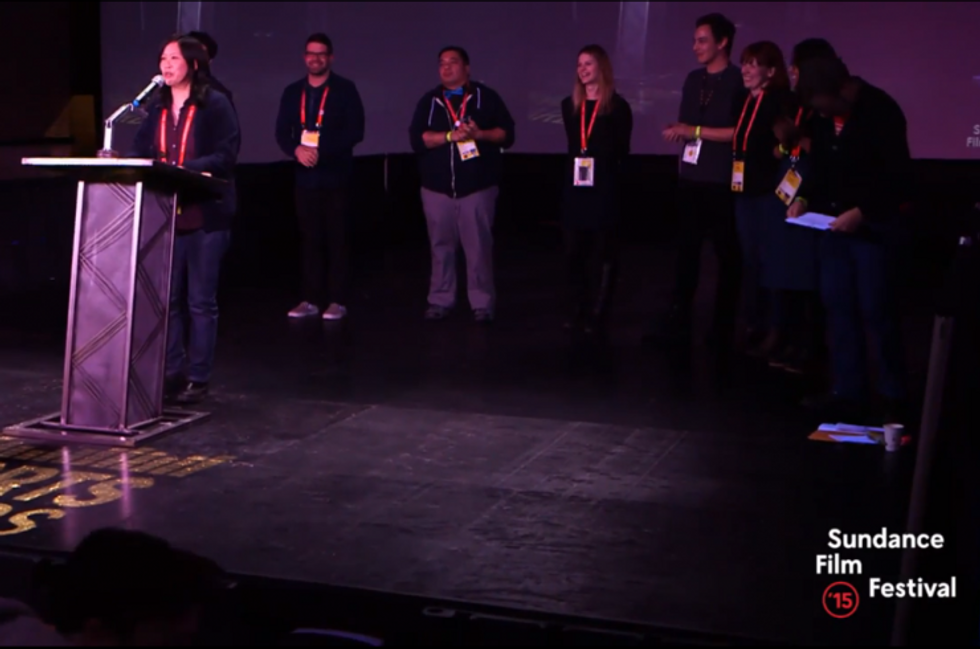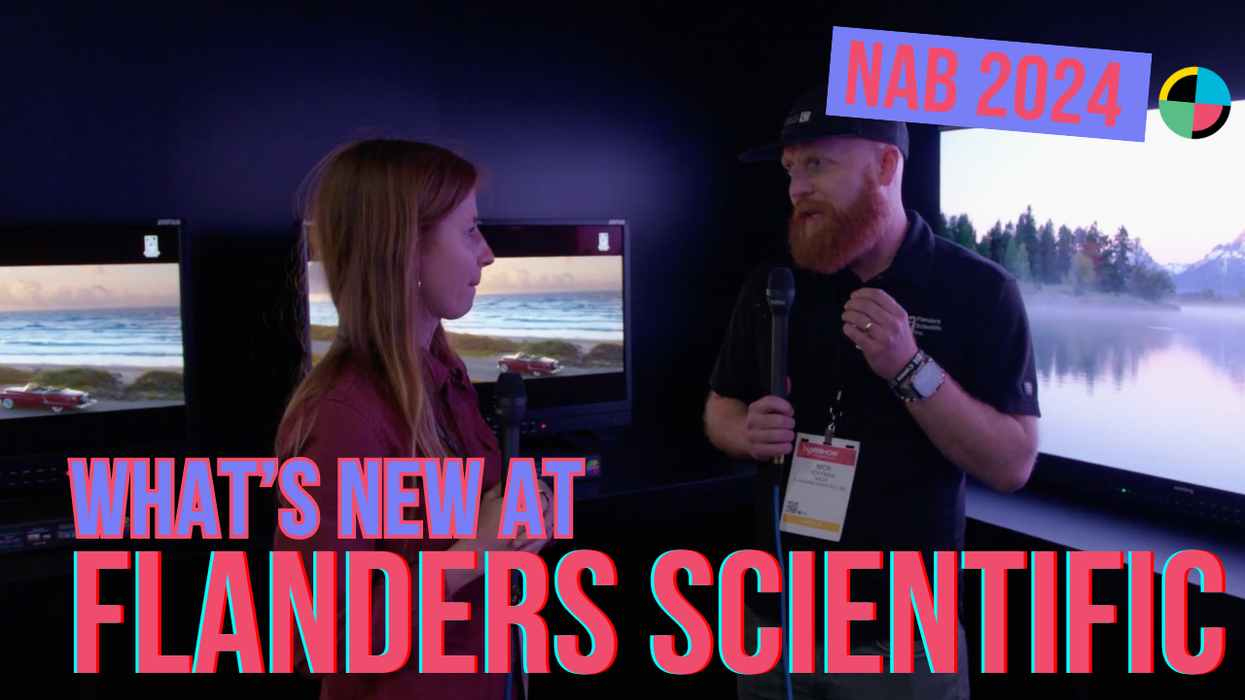How to Maximize Your 0.74% Chance of Getting Into the Sundance Shorts Program: Exclusive Q&A
There were exactly 8,061 short films submitted to the Sundance Film Festival this year. Of these, only 60 were chosen. That's a mere 0.74 percent! Tough odds, to say the least. What happens after the submission period closes and the shorts programmers start selecting films for the festival?
Something else to note this year at Sundance: a record number of short films are being picked up by distributors (including the likes of CNN, who is basing a whole film strand around Sundance short The 414s.) The demand for short films seems to be growing, which is great for filmmakers, given that there's no shortage of great work.
No Film School sat down with Sundance Short Film Programmer Katie Metcalfe to find out about not only the screening process and what it takes to get in to Sundance, but also the future of shorts programming at the festival.

I love the short film medium as a space for experimentation and trying out new techniques. It’s a great format for discovering new voices, but also for allowing established filmmakers to come back to the shorter medium to experiment with new ideas.
NFS: How did you first get interested in being a programmer?
Katie Metcalfe: It really started as a teenager in the '90s when I saw my first program of short films at the Edinburgh International Film Festival and, as there weren’t many places to watch shorts then, started tuning in to late night short film programs on TV such as The Shooting Gallery. I started putting on screenings for Future Shorts and then got involved in running their distribution label – traveling to film festivals acquiring films for the catalogue and selling them to broadcasters, airlines and other digital platforms. Most buyers were interested in comedy and more mainstream programming and I started to crave an outlet to show the more challenging, risky and innovative filmmaking, which is when I got into programming for festivals.
NFS: What interests you about the short film as a medium?
KM: I love the short film medium as a space for experimentation and trying out new techniques. It’s a great format for discovering new voices, but also for allowing established filmmakers to come back to the shorter medium to experiment with new ideas. Short films are also really sharable (online), so it’s easy to see the impact a short has on the audience.
NFS: How many short film submissions would you say Sundance received this year?
KM: Sundance received 8,061 short film submissions.
NFS: From that pool, how many films was Sundance able to program?
KM: We were able program 60 films in total across 8 programs of shorts.
NFS: As a programmer, how do you navigate the selection process? Do you pick themes or just look for the best?
KM: We go into the process with an open mind ready to hear what the filmmaking community has to say with no expectation, we really want to be surprised and blown away. So ultimately we pick the best and most original work we see, sometimes a theme may come naturally, but the films come first.
NFS: What was the process like to sort through the films? How many films do you end up watching during that period of time?
KM: We split the submissions between us and it’s usually around 1200 films each. We then put forward our recommendations and we all watch the first shortlist, which is around 200-300 films. We’ll discuss all these films as a group and build out the programs together.
We don’t have a premiere policy, so that isn’t a problem for us.
NFS: What would you say are some of the main reasons a short film doesn't make it in? Are there telltale things for filmmakers to consider (like length, premiere status, production value, etc.) that lessen their chances of being programmed?
KM: Length is a whole other conversation, but the important thing is to make sure that the film is the right length for the story, which means being very tough in the edit and really chopping off any fat. It’s the biggest complaint in the programming process and definitely a reason many great films don’t make the selection. I’ve seen 25 minute films that are a perfect runtime and 5 minute films that are also perfect so it’s all down to what works for your story. We also see a lot of films that are very similar, in terms of subject matter, production and storytelling technique and we’re really looking for films that go the extra mile, take a risk or take us somewhere we’ve never been before. We don’t have a premiere policy, so that isn’t a problem for us.
NFS: What's the hardest part of being a programmer?
KM: Making decisions at the end of the process! We could make a whole other festival out of the films we love but are not able to program so it’s always tough making those calls.

NFS: What do you normally do during the Sundance Film Festival? Do you get to meet filmmakers behind the films you’ve chosen?
KM: That’s the best part – meeting the people behind these brilliant pieces of work. We also do intros and Q&A’s for the screenings, participate in panels and host networking sessions to make sure the filmmakers are meeting the right people (and each other!)
NFS: What do you see at the future of short film programming at Sundance, and short filmmaking in general?
KM: We’re receiving more submissions funded by brands and online media platforms, which isn’t necessarily reflected in this year’s selections, but we’re noticing a shift in the type of films that are being made. We’d also like to be able to make more of the short film selections available to audiences beyond the festival by releasing them online simultaneously with the opening night of the festival.
NFS: Any advice for filmmakers looking to make a great short film, and maybe submit to Sundance in the future?
KM: Don’t focus too much on what has played before at Sundance, or try to make a film that feels "like a Sundance film" – we’re looking for originality and to see something that comes from you as an individual.
***
Thank you, Katie!
If you're interested in seeing the winning Sundance short film slate presented by Katie Metcalfe and fellow Sundance programmers, check out the Sundance Short Film Awards ceremony. And stay tuned to No Film School for interviews with this year's Sundance short filmmakers!
What do you think about the future of the short film at Sundance and beyond?

 No Film School's coverage of
No Film School's coverage of 









